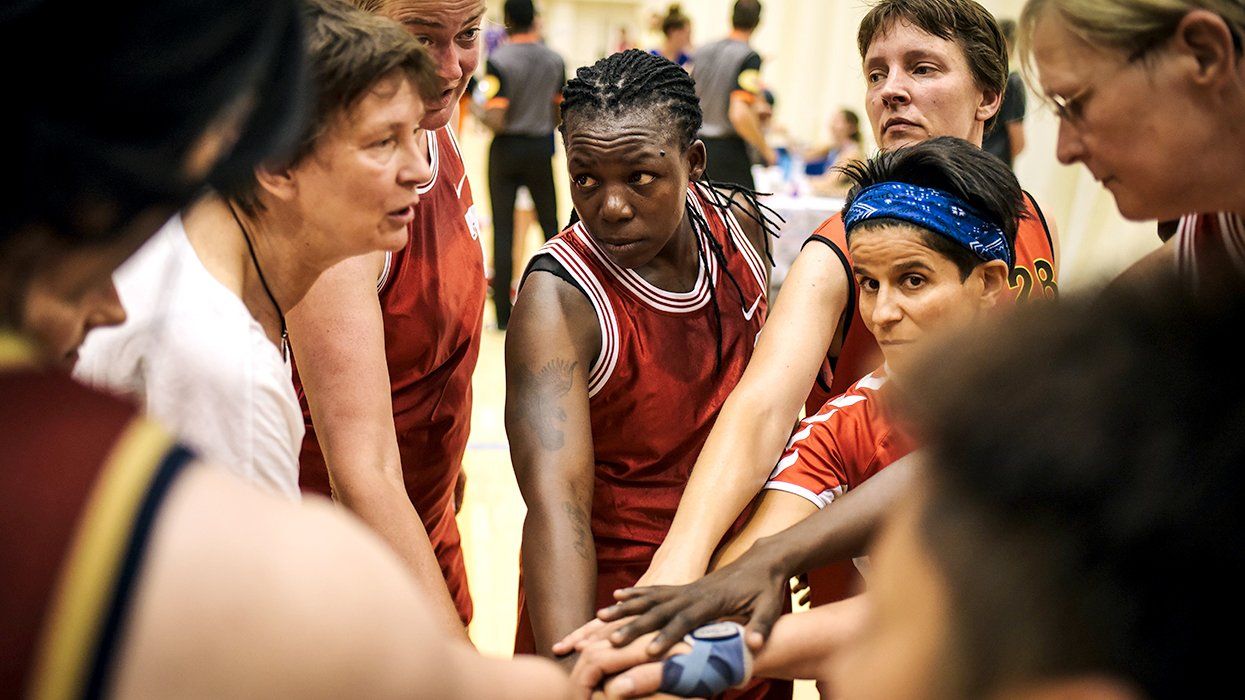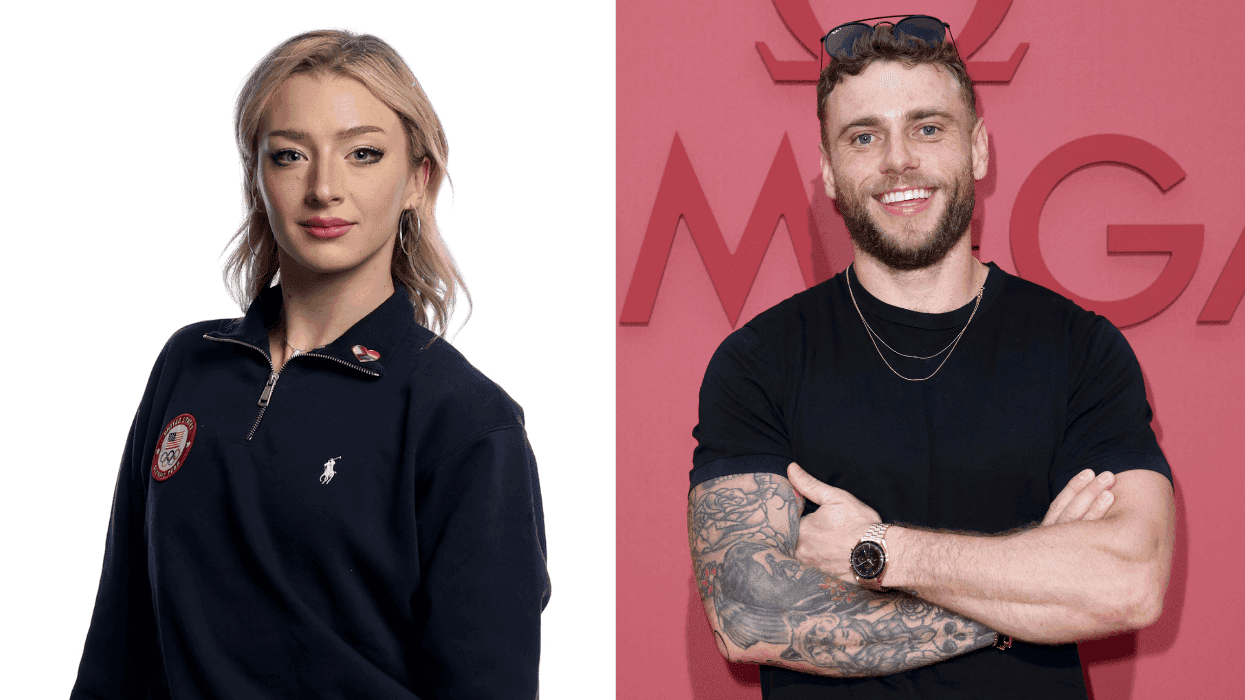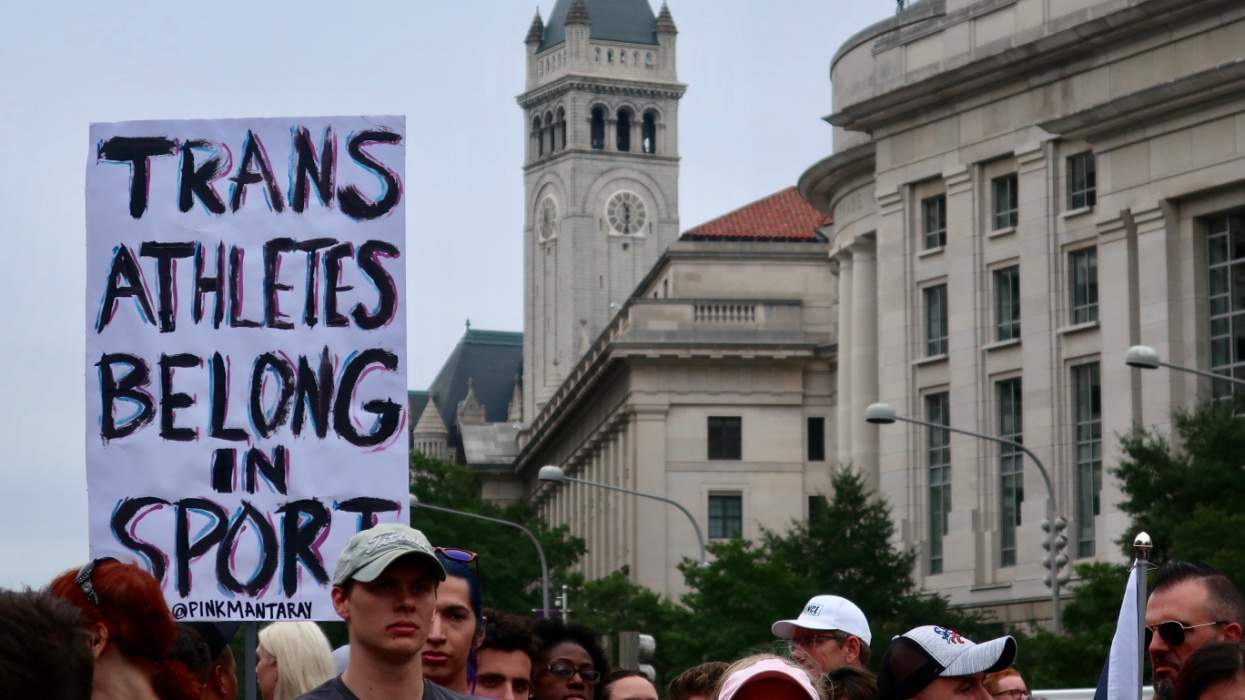The National Association of Intercollegiate Athletics, which represents small colleges and universities, has barred transgender women from participating in women’s sports.
The NAIA’s Council of Presidents approved the policy Monday. It takes effect August 1.
“Only NAIA student-athletes whose biological sex is female may participate in NAIA-sponsored female sports,” the policy states, according to an NAIA press release.
As for trans men, “any student who has not begun any masculinizing hormone therapy may participate without limitation,” it continues. Those who have become such therapy may participate in “all activities that are internal to the institution … including workouts, practices, and team activities” at the discretion of the school, but not interscholastic events. Any school where a student-athlete who has begun this therapy must notify the NAIA national office.
Competitive cheer and dance events are exceptions to these rules, as they are coed.
“We are unwavering in our support of fair competition for our student-athletes,” NAIA President and CEO Jim Carr said in the release. “It is crucial that NAIA member institutions, conferences, and student-athletes participate in an environment that is equitable and respectful. With input from our member institutions and the Transgender Task Force, the NAIA’s Council of Presidents has confirmed our path forward.”
The Council of Presidents approved the policy 20-0, the Associated Press reports. The NAIA has 241 member schools, mostly small and private, representing about 83,000 athletes. It “is believed to be the first college sports organization to take such a step,” according to the AP.
The NAIA did not respond to The Advocate’s questions on the policy, including whether any transgender people had input. But Carr spoke to the AP, saying, “We know there are a lot of opinions, and a lot of people have a very emotional reaction to this, and we want to be respectful of all that. But we feel like our primary responsibility is fairness in competition, so we are following that path. And we’ve tried as best we could to allow for some participation by all.”
The NAIA states that besides cheer and dance, every other sport “includes some combination of strength, speed and stamina, providing competitive advantages for male student-athletes.” But numerous scientists and activists contend that trans women — who were assigned male at birth — do not have an inherent advantage over cisgender women.
The policy “will be subject to review in light of any legal, scientific, or medical developments,” the press release notes.
Civil rights activists were enraged by the move. “It is a shocking and devastating development that the NAIA, an organization that has done so much to open doors, is now slamming those doors shut on transgender athletes, based on ignorance, prejudice, and ginned-up public hysteria. Research has amply demonstrated the many benefits for students that flow from participation in school sports, from grade school through young adulthood, said a statement from Sasha Buchert, Lambda Legal senior attorney and director of the organization's Nonbinary and Transgender Rights Project. "But, instead of standing up in support of transgender young people, the NAIA has simply turned its back on them — permanently depriving them of the benefits of participation.
“Would that they had the courage of victorious University of South Carolina women’s basketball coach Dawn Staley, who didn’t miss a beat in clarifying that transgender women should be able to play. Instead, the NAIA announcement sends a dangerous message, is inconsistent with the law and science, and undercuts the organization’s rich history of inclusion.
“And let’s be clear — we’re talking about a tiny population who are under cruel and sustained attack in state houses across the country and in the U.S. House of Representatives. It is unconscionable that an organization that touts its ‘strong history of advocacy’ has chosen to use its power to smack down, rather than lift up these vulnerable athletes. We urge the members of the NAIA to educate themselves further and to reconsider their position. And we sincerely hope that the much larger NCAA will not act to amplify the harm.”
“Today, the NAIA decided to bar an entire category of people from competition simply because of a right-wing outrage campaign that purposefully misrepresents and distorts the realities of transgender athletes while doing nothing to support women’s sports,” Kelley Robinson, president of the Human Rights Campaign, said in a press release. “The benefits of sports to the mind, body, and spirit are well known. Every student, including transgender student athletes, deserve the opportunity to be a part of a team and to learn about sportsmanship, self-discipline, perseverance and more. The NAIA should listen to Hall of Famers like Coach Dawn Staley, and do everything it can to expand access to athletics, including to correct the long-standing lack of resources and support for women’s athletics, instead of engaging in even more discrimination. The chilling message this sends not just to other sanctioning bodies but also to youth sports leagues across the country is dangerous and it must be stopped in its tracks.”
“This is unacceptable and blatant discrimination that not only harms trans, nonbinary and intersex individuals, but limits the potential of all athletes,” said a statement from Shiwali Patel, director of justice for student survivors and senior counsel at the National Women’s Law Center. “It’s important to recognize that these discriminatory policies don’t enhance fairness in competition. Instead, they send a message of exclusion and reinforce dangerous stereotypes that harm all women.”
“This policy is a failure of leadership by NAIA and marks a sad day for women’s sports,” Hudson Taylor, Athlete Ally founder and executive director, said in a press release. “We hope other sport governing bodies don’t also succumb to political pressure, and instead fight for a future of sports where everyone belongs.”
The action by the NAIA brought speculation about possible policy changes by the National Collegiate Athletic Association, whose membership consists of larger schools. The NCAA lets the governing body for each sport set policy on trans athletes. The NCAA released a statement saying, “College sports are the premier stage for women’s sports in America and the NCAA will continue to promote Title IX, make unprecedented investments in women’s sports and ensure fair competition for all student-athletes in all NCAA championships.”
Title IX of the Education Amendments of 1972 is a U.S. law banning sex discrimination in federally funded educational programs. President Joe Biden’s administration has proposed a rule on enforcement of the law holding that categorical bans on trans athletes violate it but that in some instances schools may limit their participation. The proposal has brought criticism from trans rights activists.
In the past few years, 24 states have passed laws restricting trans students’ sports participation in public schools and, in some cases, state-run colleges and universities. One other, Alaska, has adopted regulations to this effect but has not passed a law.















Charlie Kirk DID say stoning gay people was the 'perfect law' — and these other heinous quotes
These are some of his worst comments about LGBTQ+ people made by Charlie Kirk.